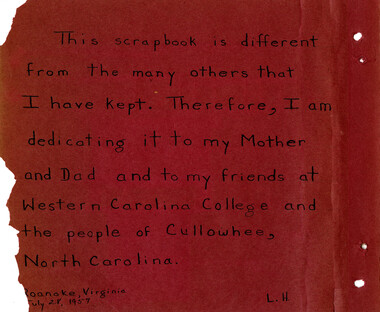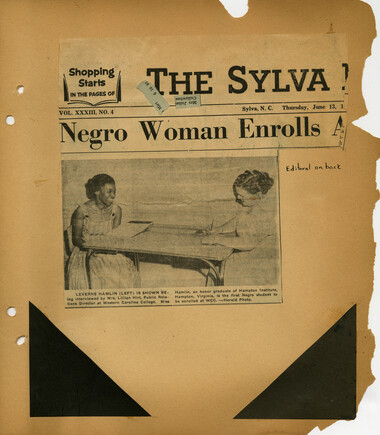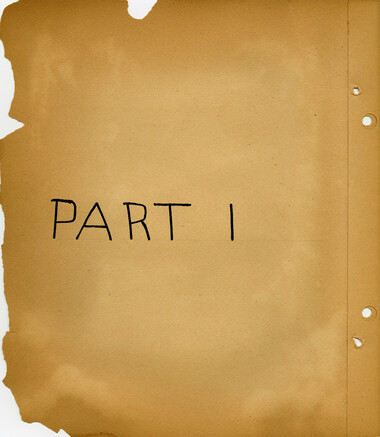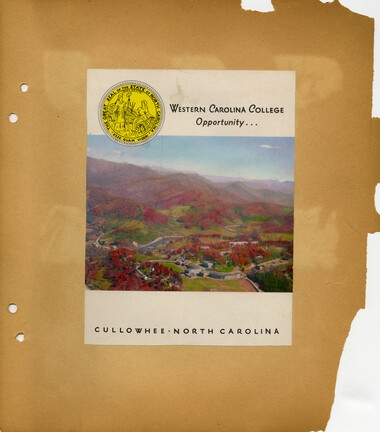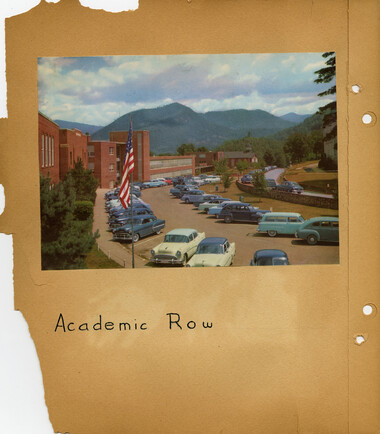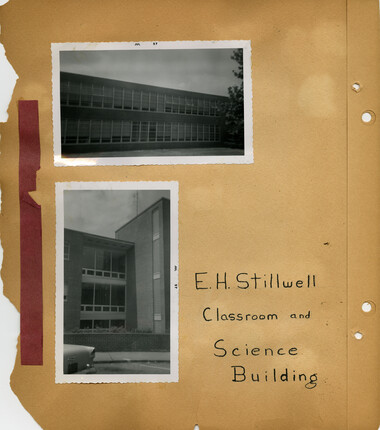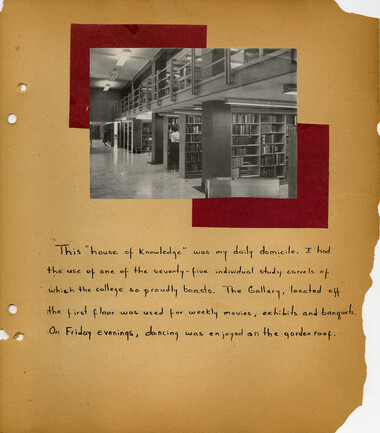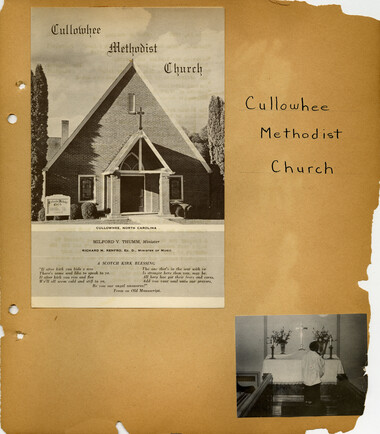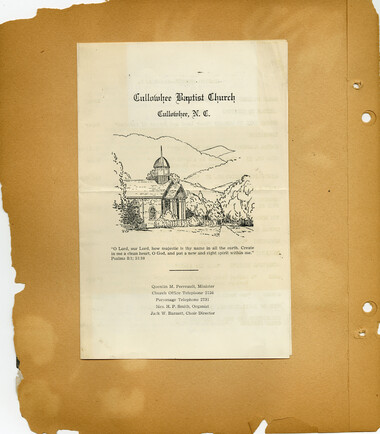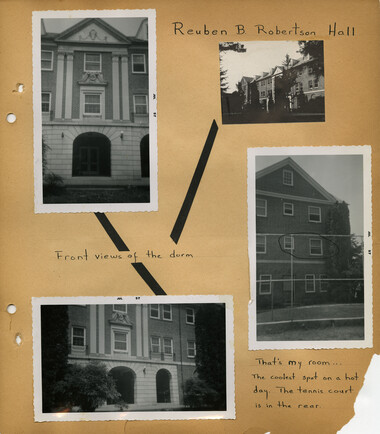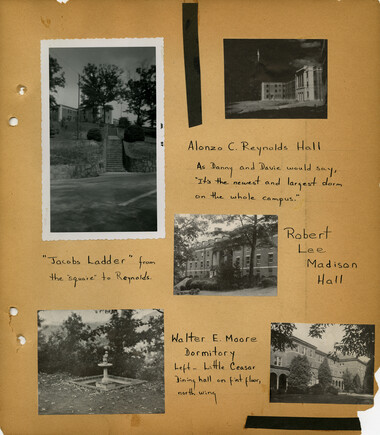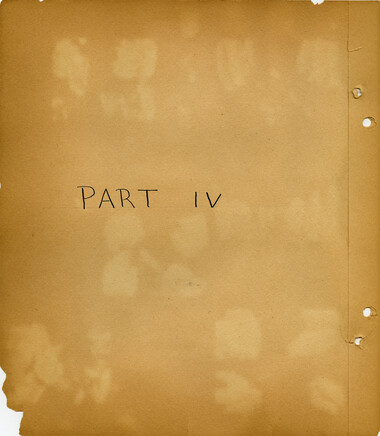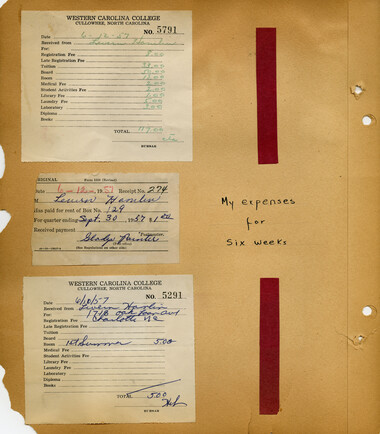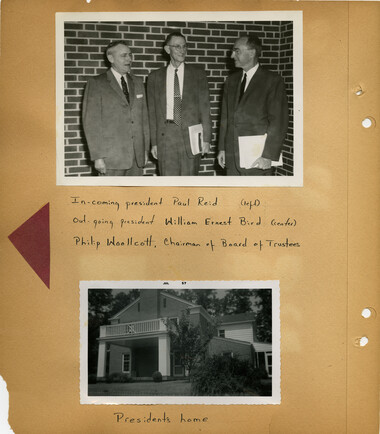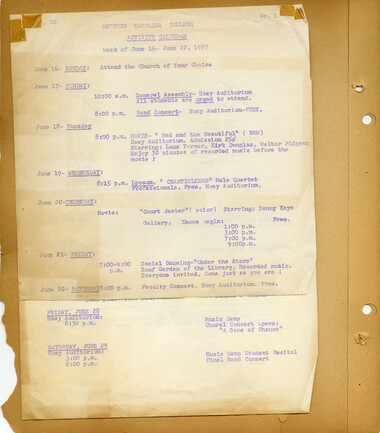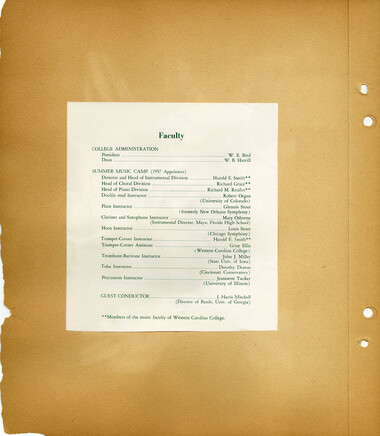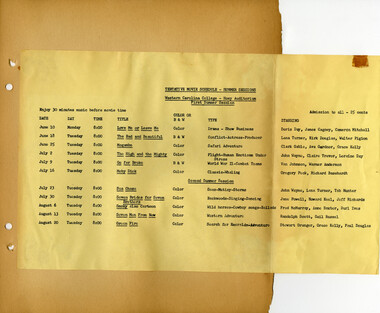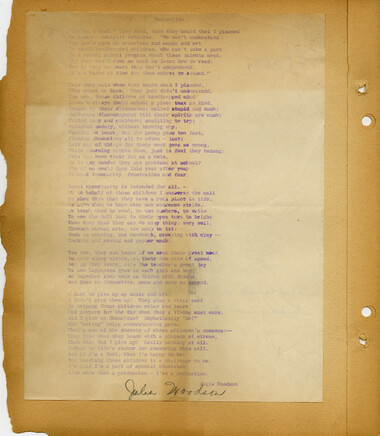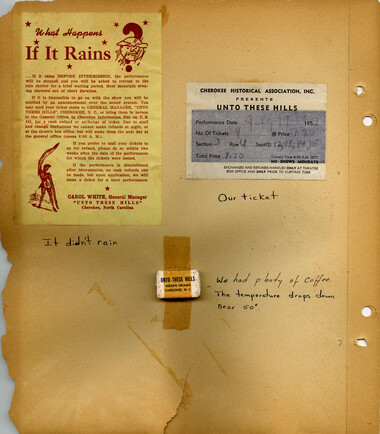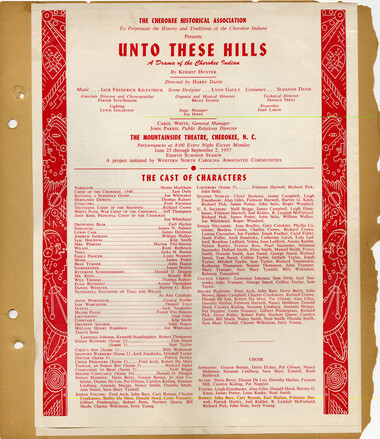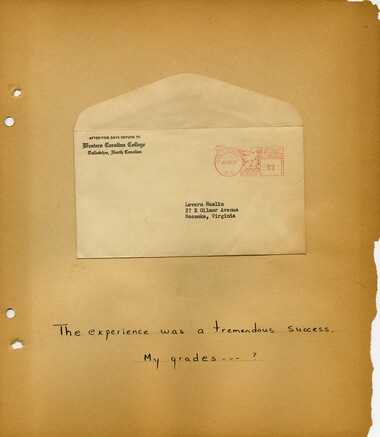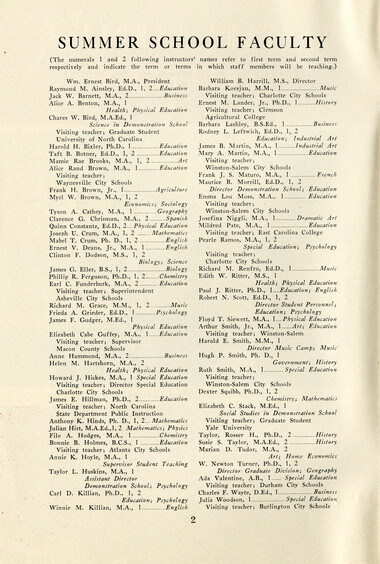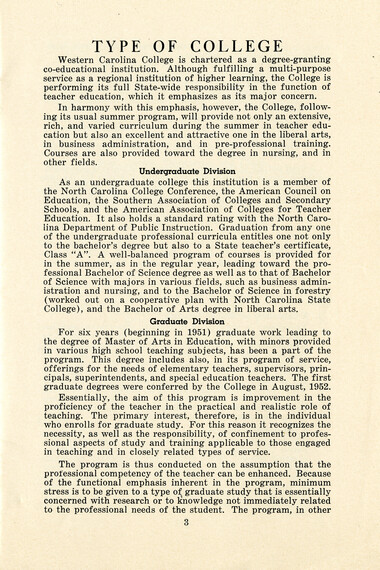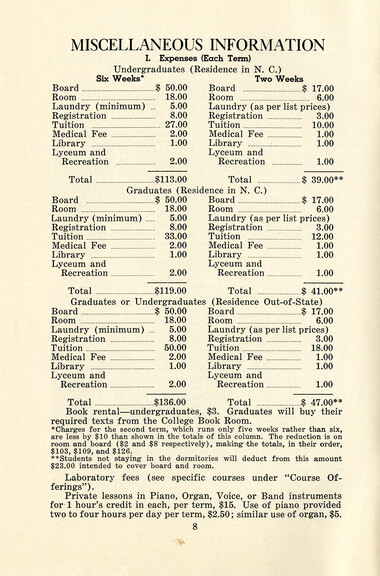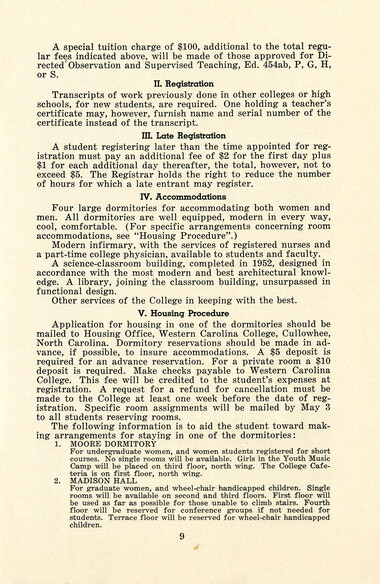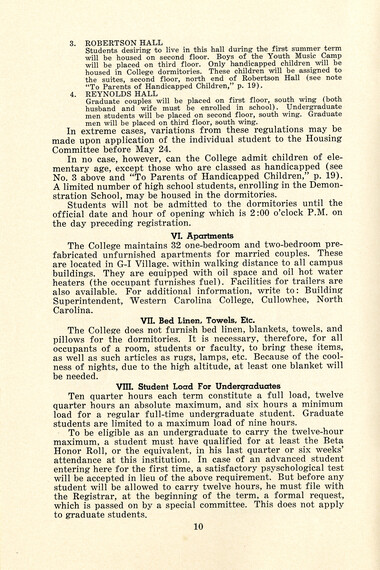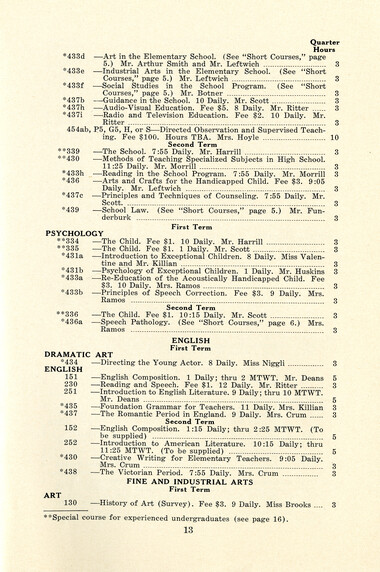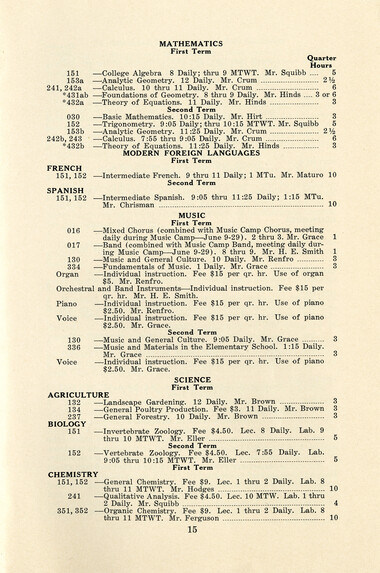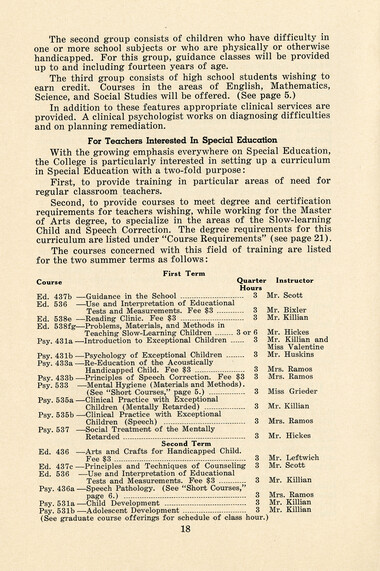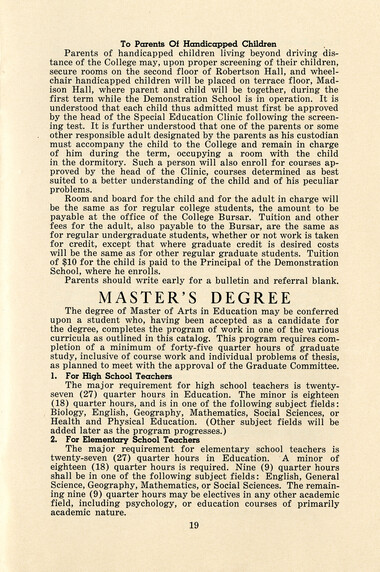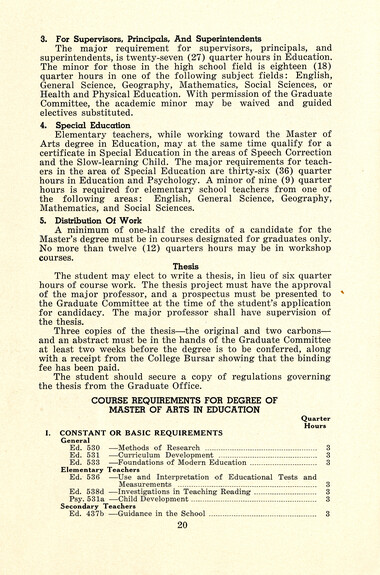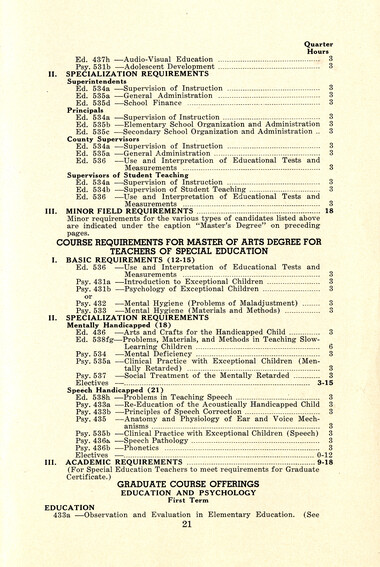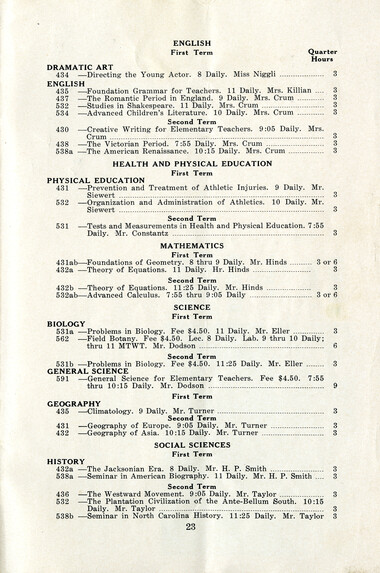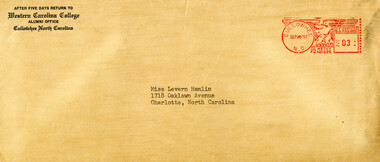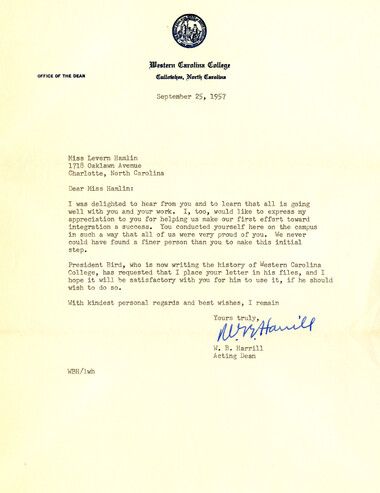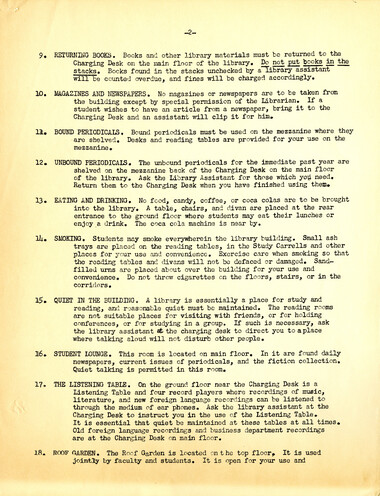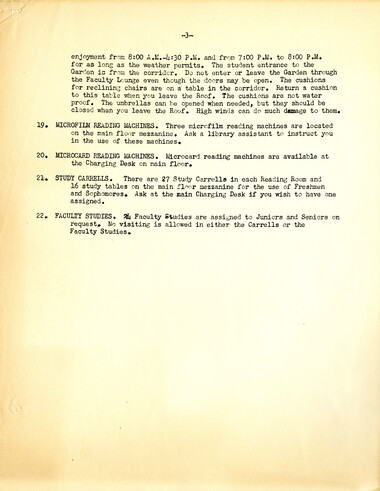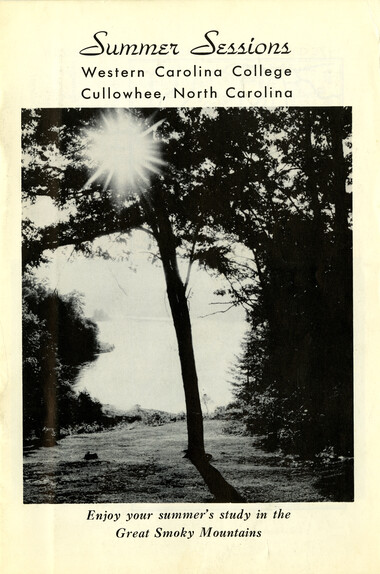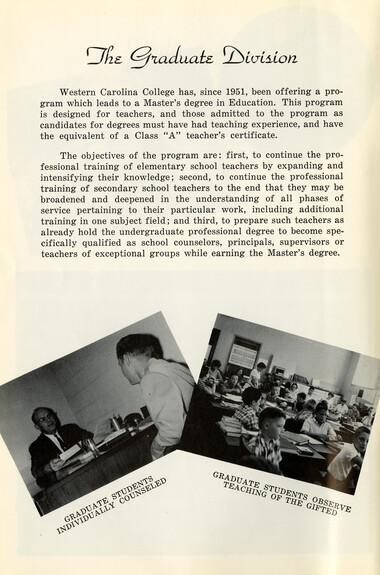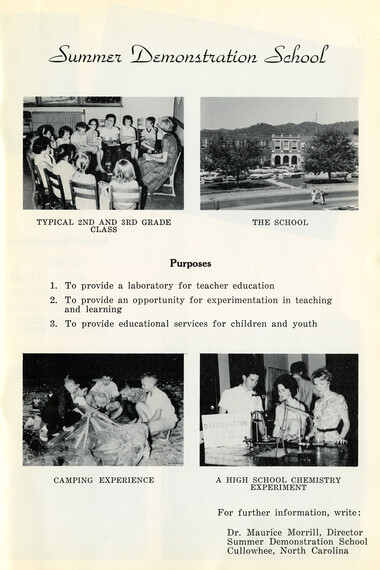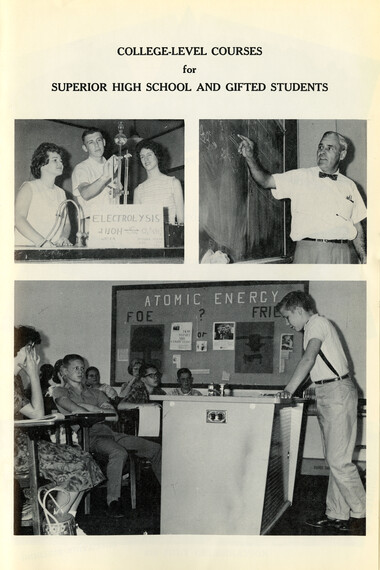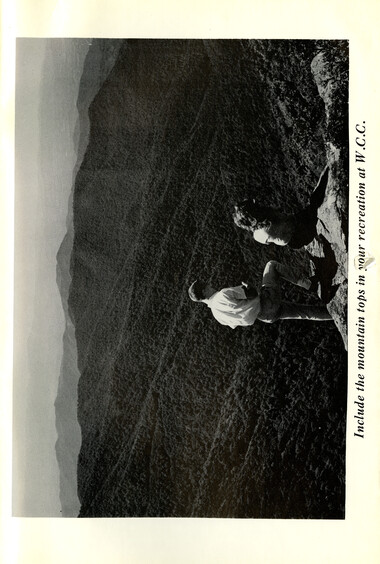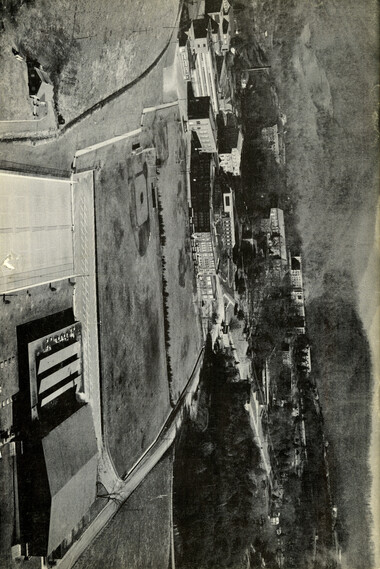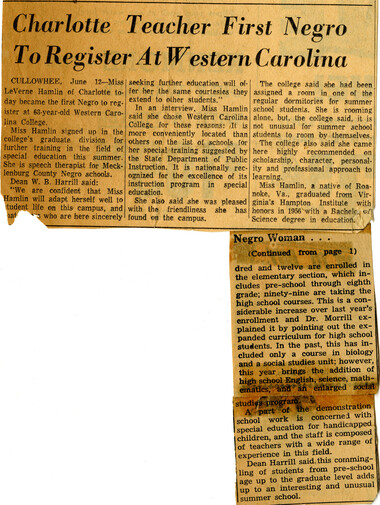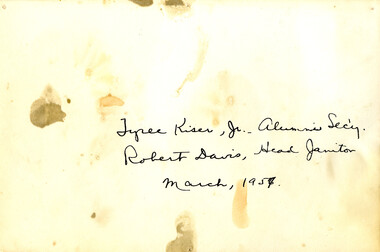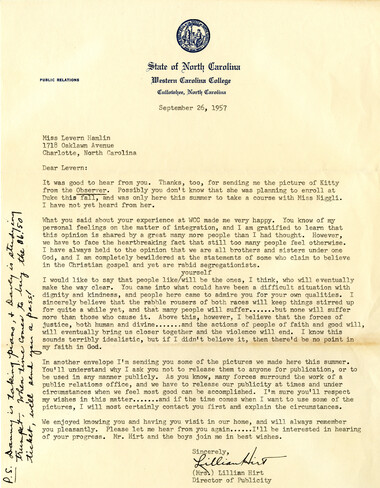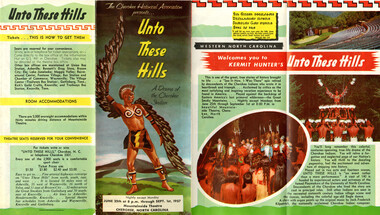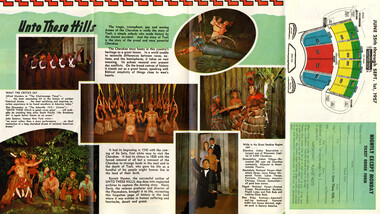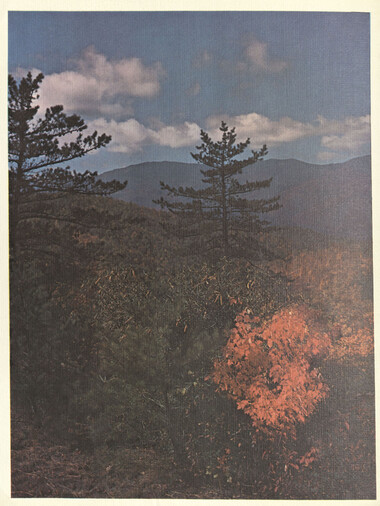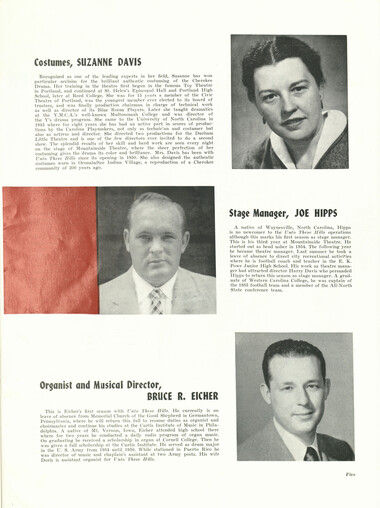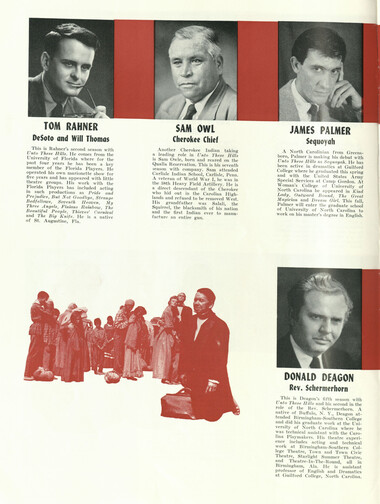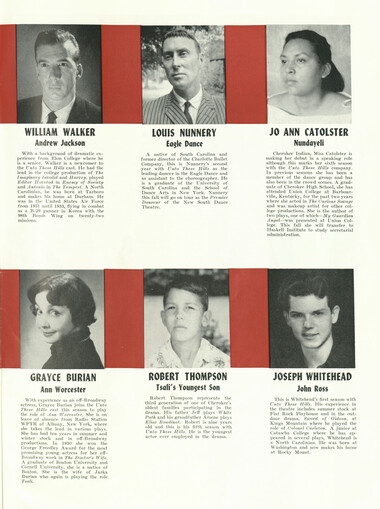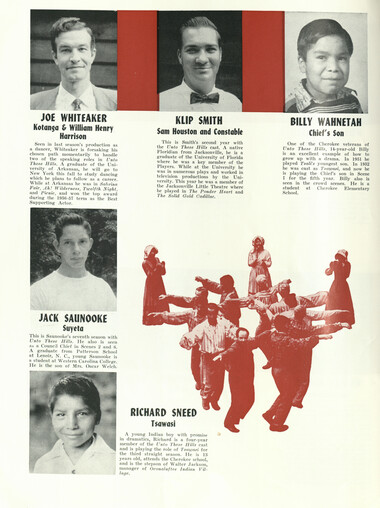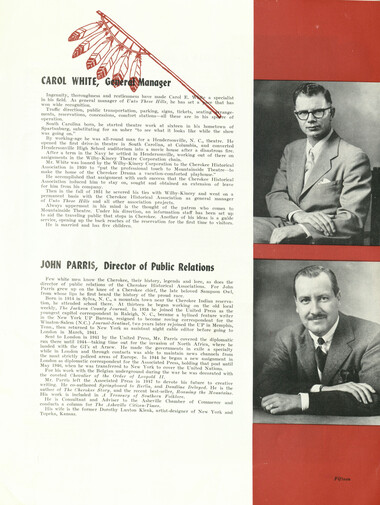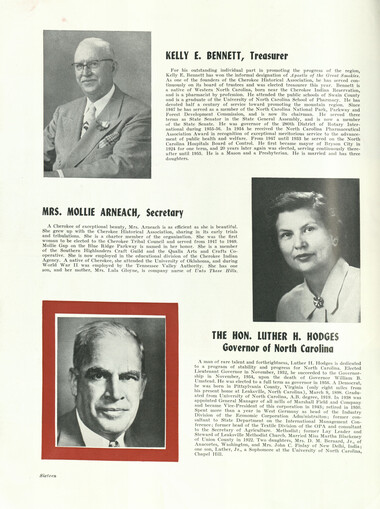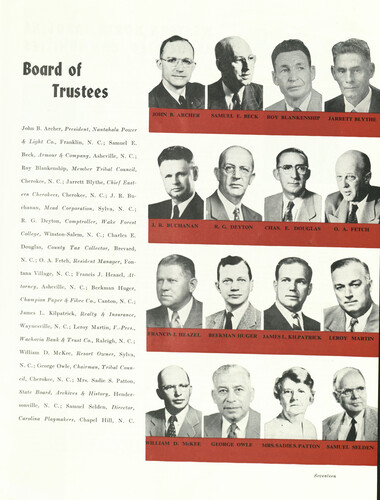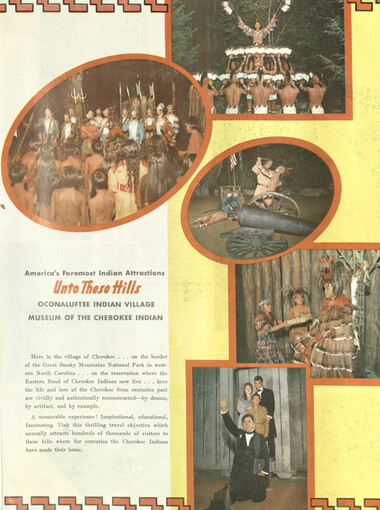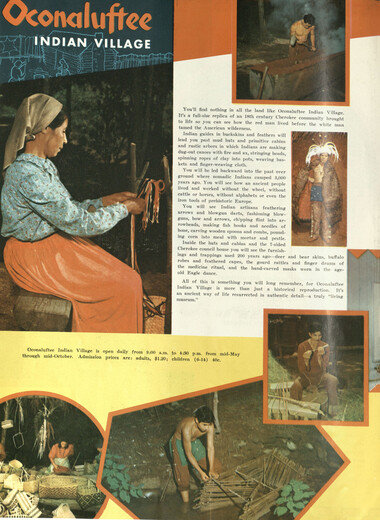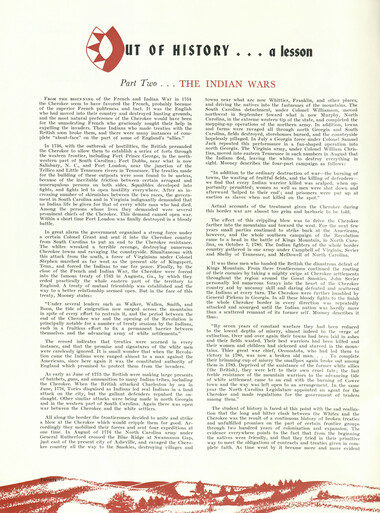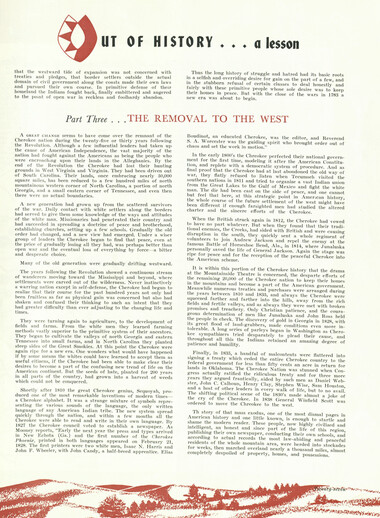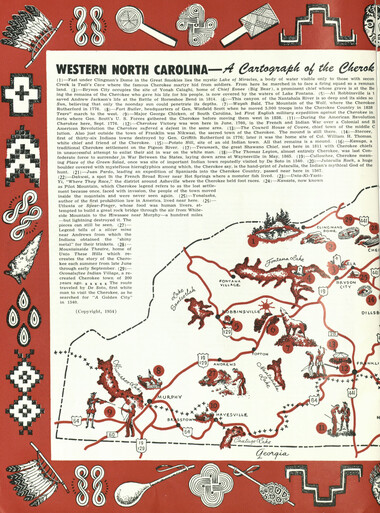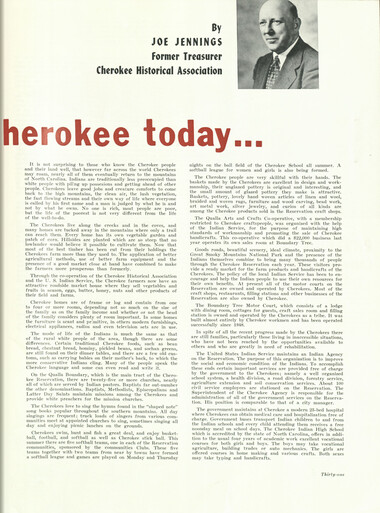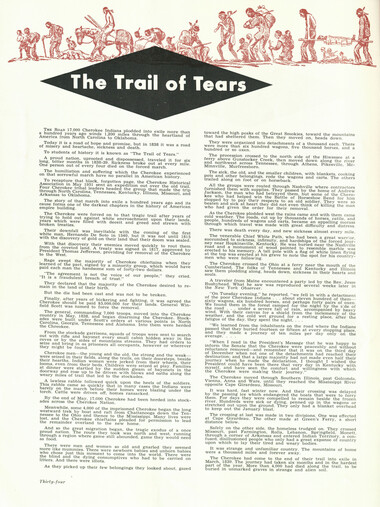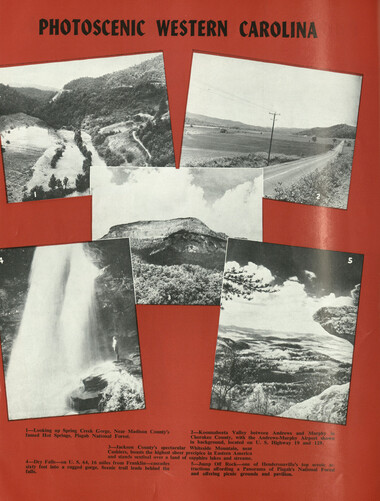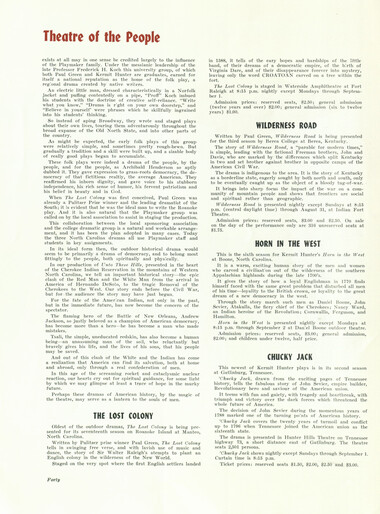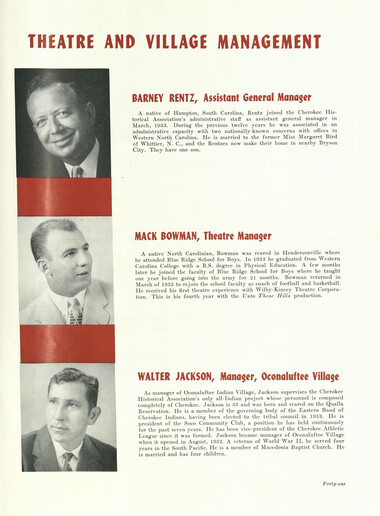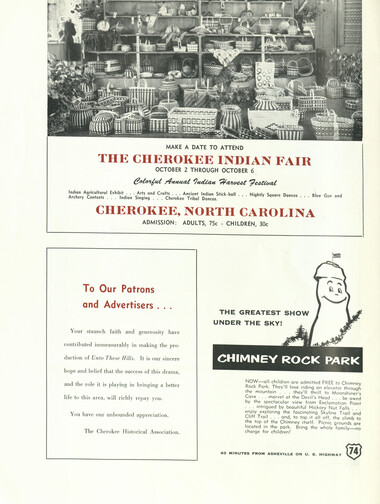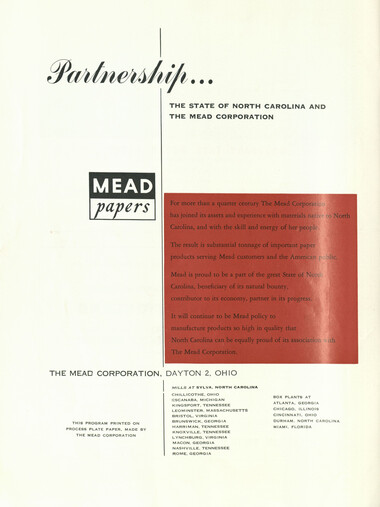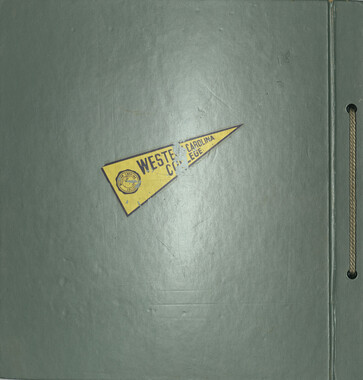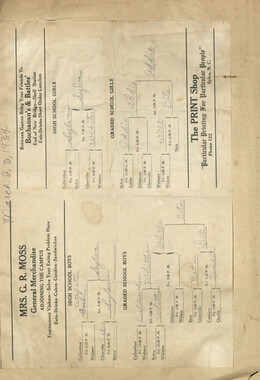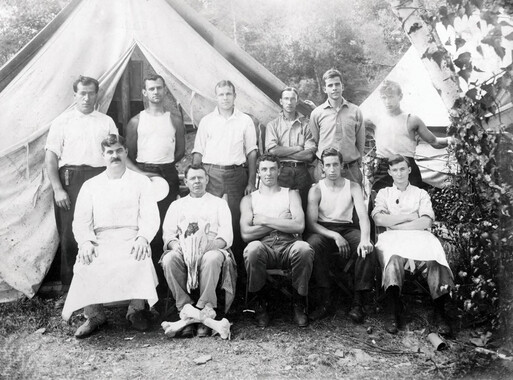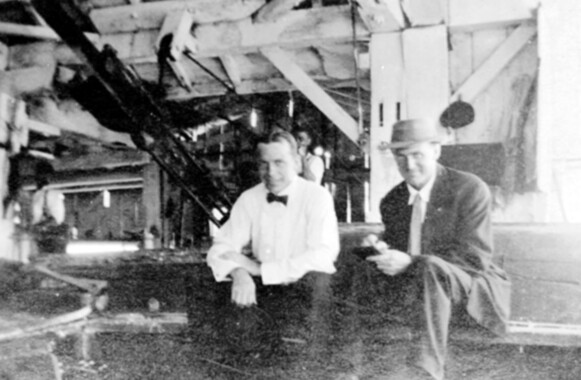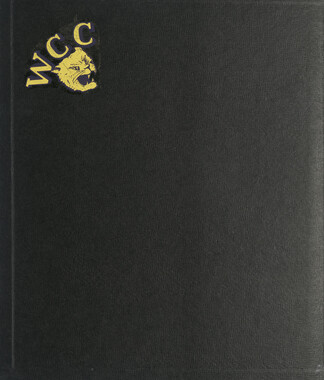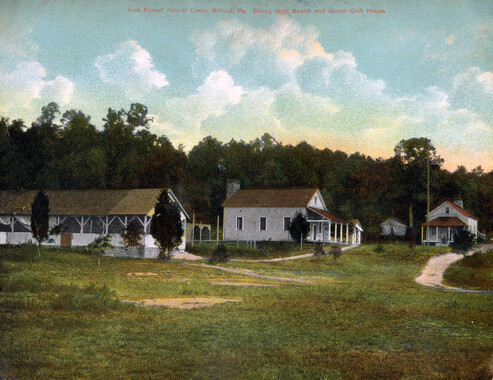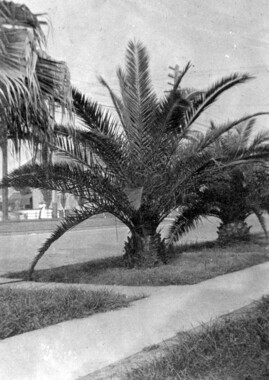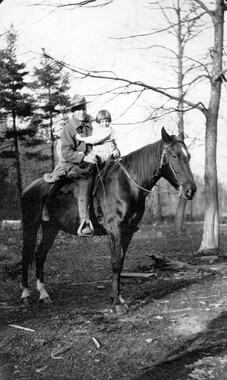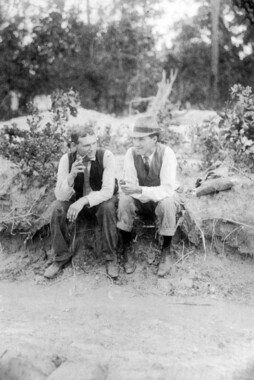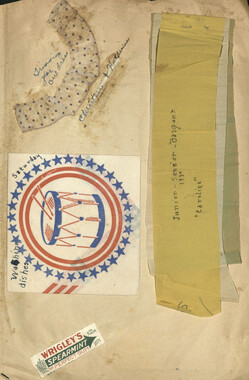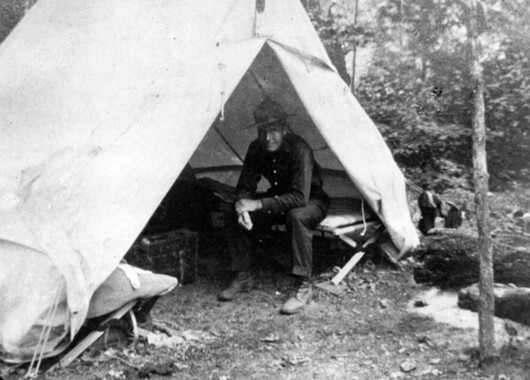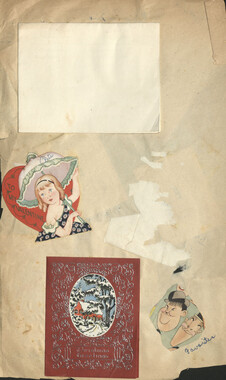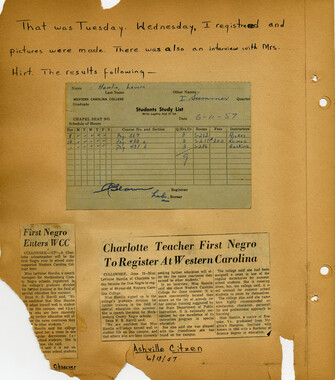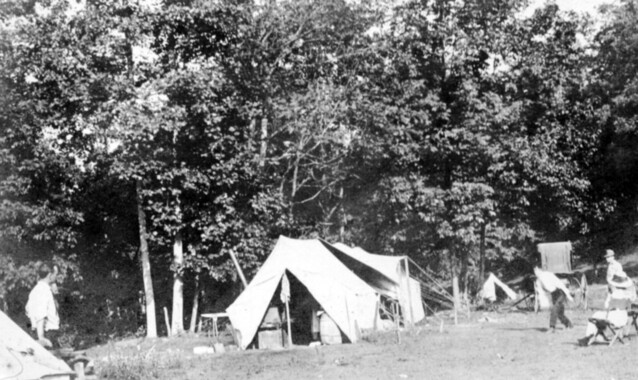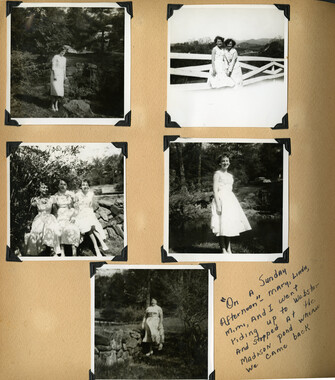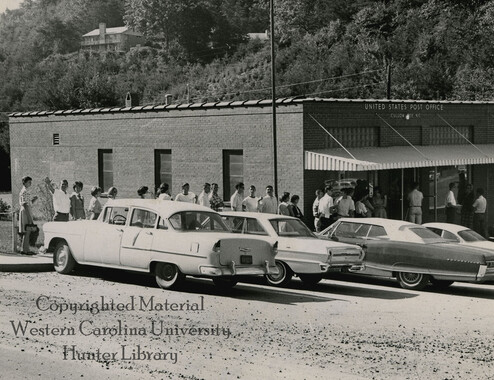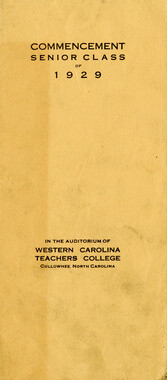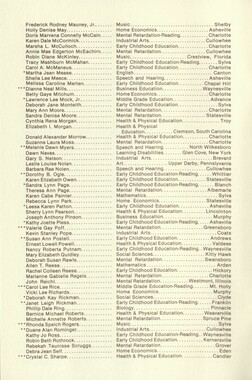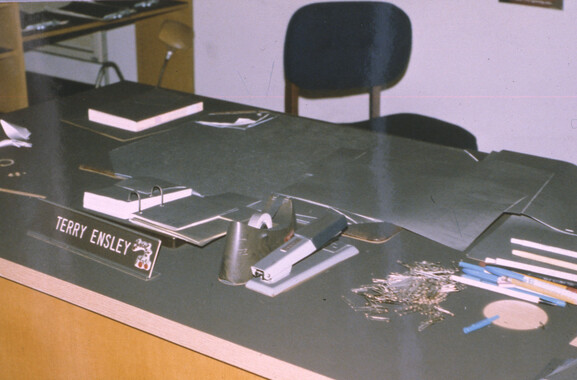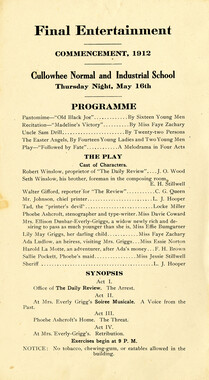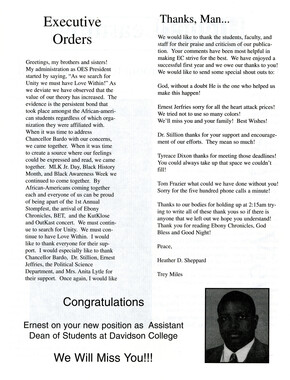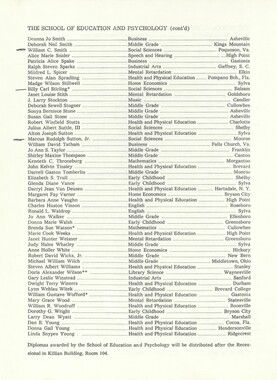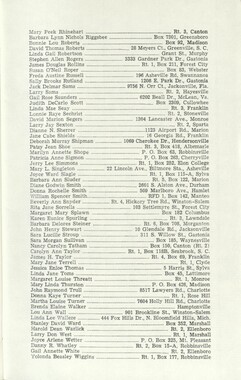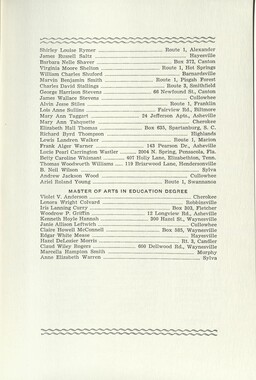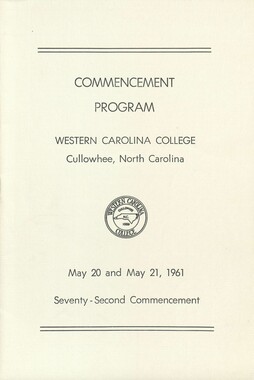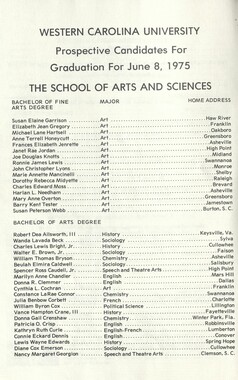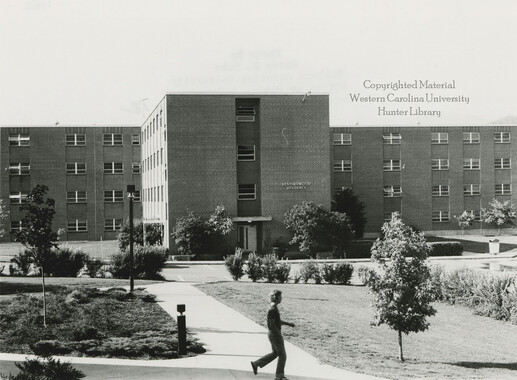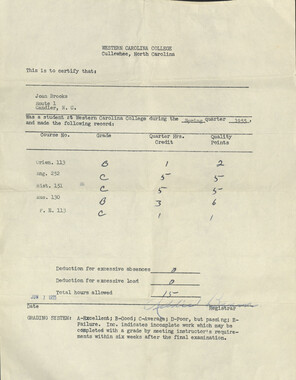Western Carolina University (20)
View all
- Canton Champion Fibre Company (2308)
- Cherokee Traditions (291)
- Civil War in Southern Appalachia (165)
- Craft Revival (1942)
- Great Smoky Mountains - A Park for America (2946)
- Highlights from Western Carolina University (430)
- Horace Kephart (941)
- Journeys Through Jackson (159)
- LGBTQIA+ Archive of Jackson County (85)
- Oral Histories of Western North Carolina (314)
- Picturing Appalachia (6873)
- Stories of Mountain Folk (413)
- Travel Western North Carolina (160)
- Western Carolina University Fine Art Museum Vitreograph Collection (129)
- Western Carolina University Herbarium (92)
- Western Carolina University: Making Memories (738)
- Western Carolina University Publications (2491)
- Western Carolina University Restricted Electronic Theses and Dissertations (146)
- Western North Carolina Regional Maps (71)
- World War II in Southern Appalachia (131)
University of North Carolina Asheville (6)
View all
- Ensley, A. L. (Abraham Lincoln), 1865-1948 (1)
- Western Carolina College (31)
- Western Carolina Teachers College (43)
- Western Carolina University (30)
- Allanstand Cottage Industries (0)
- Appalachian National Park Association (0)
- Bennett, Kelly, 1890-1974 (0)
- Berry, Walter (0)
- Brasstown Carvers (0)
- Cain, Doreyl Ammons (0)
- Carver, George Washington, 1864?-1943 (0)
- Cathey, Joseph, 1803-1874 (0)
- Champion Fibre Company (0)
- Champion Paper and Fibre Company (0)
- Cherokee Indian Fair Association (0)
- Cherokee Language Program (0)
- Crittenden, Lorraine (0)
- Crowe, Amanda (0)
- Edmonston, Thomas Benton, 1842-1907 (0)
- Fromer, Irving Rhodes, 1913-1994 (0)
- George Butz (BFS 1907) (0)
- Goodrich, Frances Louisa (0)
- Grant, George Alexander, 1891-1964 (0)
- Heard, Marian Gladys (0)
- Kephart, Calvin, 1883-1969 (0)
- Kephart, Horace, 1862-1931 (0)
- Kephart, Laura, 1862-1954 (0)
- Laney, Gideon Thomas, 1889-1976 (0)
- Masa, George, 1881-1933 (0)
- McElhinney, William Julian, 1896-1953 (0)
- Niggli, Josephina, 1910-1983 (0)
- North Carolina Park Commission (0)
- Osborne, Kezia Stradley (0)
- Owens, Samuel Robert, 1918-1995 (0)
- Penland Weavers and Potters (0)
- Rhodes, Judy (0)
- Roberts, Vivienne (0)
- Roth, Albert, 1890-1974 (0)
- Schenck, Carl Alwin, 1868-1955 (0)
- Sherrill's Photography Studio (0)
- Smith, Edward Clark (0)
- Southern Highland Handicraft Guild (0)
- Southern Highlanders, Inc. (0)
- Stalcup, Jesse Bryson (0)
- Stearns, I. K. (0)
- Thompson, James Edward, 1880-1976 (0)
- United States. Indian Arts and Crafts Board (0)
- USFS (0)
- Vance, Zebulon Baird, 1830-1894 (0)
- Weaver, Zebulon, 1872-1948 (0)
- Western Carolina University. Mountain Heritage Center (0)
- Whitman, Walt, 1819-1892 (0)
- Wilburn, Hiram Coleman, 1880-1967 (0)
- Williams, Isadora (0)
- 1880s (4)
- 1890s (34)
- 1900s (103)
- 1910s (29)
- 1920s (63)
- 1930s (132)
- 1940s (90)
- 1950s (63)
- 1960s (68)
- 1970s (56)
- 1980s (68)
- 1990s (18)
- 2000s (10)
- 2010s (3)
- 1600s (0)
- 1700s (0)
- 1800s (0)
- 1810s (0)
- 1820s (0)
- 1830s (0)
- 1840s (0)
- 1850s (0)
- 1860s (0)
- 1870s (0)
- 2020s (0)
- Appalachian Region, Southern (1)
- Jackson County (N.C.) (712)
- Macon County (N.C.) (3)
- Qualla Boundary (2)
- Asheville (N.C.) (0)
- Avery County (N.C.) (0)
- Blount County (Tenn.) (0)
- Buncombe County (N.C.) (0)
- Cherokee County (N.C.) (0)
- Clay County (N.C.) (0)
- Graham County (N.C.) (0)
- Great Smoky Mountains National Park (N.C. and Tenn.) (0)
- Haywood County (N.C.) (0)
- Henderson County (N.C.) (0)
- Knox County (Tenn.) (0)
- Knoxville (Tenn.) (0)
- Lake Santeetlah (N.C.) (0)
- Madison County (N.C.) (0)
- McDowell County (N.C.) (0)
- Mitchell County (N.C.) (0)
- Polk County (N.C.) (0)
- Rutherford County (N.C.) (0)
- Swain County (N.C.) (0)
- Transylvania County (N.C.) (0)
- Watauga County (N.C.) (0)
- Waynesville (N.C.) (0)
- Yancey County (N.C.) (0)
- Aerial Views (44)
- Artifacts (object Genre) (2)
- Biography (general Genre) (1)
- Clippings (information Artifacts) (4)
- Drawings (visual Works) (1)
- Fliers (printed Matter) (1)
- Glass Plate Negatives (1)
- Interviews (5)
- Letters (correspondence) (7)
- Manuscripts (documents) (4)
- Photographs (516)
- Plans (maps) (1)
- Poetry (3)
- Portraits (39)
- Postcards (6)
- Programs (documents) (151)
- Publications (documents) (12)
- Scrapbooks (5)
- Slides (photographs) (22)
- Sound Recordings (4)
- Speeches (documents) (4)
- Transcripts (3)
- Aerial Photographs (0)
- Albums (books) (0)
- Articles (0)
- Bibliographies (0)
- Cards (information Artifacts) (0)
- Copybooks (instructional Materials) (0)
- Crafts (art Genres) (0)
- Depictions (visual Works) (0)
- Design Drawings (0)
- Envelopes (0)
- Exhibitions (events) (0)
- Facsimiles (reproductions) (0)
- Fiction (general Genre) (0)
- Financial Records (0)
- Guidebooks (0)
- Internegatives (0)
- Land Surveys (0)
- Maps (documents) (0)
- Memorandums (0)
- Minutes (administrative Records) (0)
- Negatives (photographs) (0)
- Newsletters (0)
- Newspapers (0)
- Notebooks (0)
- Occupation Currency (0)
- Paintings (visual Works) (0)
- Pen And Ink Drawings (0)
- Periodicals (0)
- Personal Narratives (0)
- Questionnaires (0)
- Relief Prints (0)
- Sayings (literary Genre) (0)
- Sheet Music (0)
- Songs (musical Compositions) (0)
- Specimens (0)
- Text Messages (0)
- Tintypes (photographs) (0)
- Video Recordings (physical Artifacts) (0)
- A.L. Ensley Collection (1)
- Appalachian Industrial School Records (0)
- Appalachian National Park Association Records (0)
- Axley-Meroney Collection (0)
- Bayard Wootten Photograph Collection (0)
- Bethel Rural Community Organization Collection (0)
- Blumer Collection (0)
- C.W. Slagle Collection (0)
- Canton Area Historical Museum (0)
- Carlos C. Campbell Collection (0)
- Cataloochee History Project (0)
- Cherokee Studies Collection (0)
- Daisy Dame Photograph Album (0)
- Daniel Boone VI Collection (0)
- Doris Ulmann Photograph Collection (0)
- Elizabeth H. Lasley Collection (0)
- Elizabeth Woolworth Szold Fleharty Collection (0)
- Frank Fry Collection (0)
- George Masa Collection (0)
- Gideon Laney Collection (0)
- Hazel Scarborough Collection (0)
- Hiram C. Wilburn Papers (0)
- Historic Photographs Collection (0)
- Horace Kephart Collection (0)
- Humbard Collection (0)
- Hunter and Weaver Families Collection (0)
- I. D. Blumenthal Collection (0)
- Isadora Williams Collection (0)
- Jesse Bryson Stalcup Collection (0)
- Jim Thompson Collection (0)
- John B. Battle Collection (0)
- John C. Campbell Folk School Records (0)
- John Parris Collection (0)
- Judaculla Rock project (0)
- Kelly Bennett Collection (0)
- Love Family Papers (0)
- Major Wiley Parris Civil War Letters (0)
- Map Collection (0)
- McFee-Misemer Civil War Letters (0)
- Mountain Heritage Center Collection (0)
- Norburn - Robertson - Thomson Families Collection (0)
- Pauline Hood Collection (0)
- Pre-Guild Collection (0)
- Qualla Arts and Crafts Mutual Collection (0)
- R.A. Romanes Collection (0)
- Rosser H. Taylor Collection (0)
- Samuel Robert Owens Collection (0)
- Sara Madison Collection (0)
- Sherrill Studio Photo Collection (0)
- Smoky Mountains Hiking Club Collection (0)
- Stories of Mountain Folk - Radio Programs (0)
- The Reporter, Western Carolina University (0)
- Venoy and Elizabeth Reed Collection (0)
- WCU Gender and Sexuality Oral History Project (0)
- WCU Mountain Heritage Center Oral Histories (0)
- WCU Oral History Collection - Mountain People, Mountain Lives (0)
- WCU Students Newspapers Collection (0)
- Western North Carolina Tomorrow Black Oral History Project (0)
- William Williams Stringfield Collection (0)
- Zebulon Weaver Collection (0)
- African Americans (3)
- Church buildings (10)
- College student newspapers and periodicals (8)
- Floods (1)
- Great Smoky Mountains National Park (N.C. and Tenn.) (1)
- Appalachian Trail (0)
- Artisans (0)
- Cherokee art (0)
- Cherokee artists -- North Carolina (0)
- Cherokee language (0)
- Cherokee pottery (0)
- Cherokee women (0)
- Civilian Conservation Corps (U.S.) (0)
- Dams (0)
- Dance (0)
- Education (0)
- Folk music (0)
- Forced removal, 1813-1903 (0)
- Forest conservation (0)
- Forests and forestry (0)
- Gender nonconformity (0)
- Hunting (0)
- Landscape photography (0)
- Logging (0)
- Maps (0)
- Mines and mineral resources (0)
- North Carolina -- Maps (0)
- Paper industry (0)
- Postcards (0)
- Pottery (0)
- Railroad trains (0)
- Rural electrification -- North Carolina, Western (0)
- School integration -- Southern States (0)
- Segregation -- North Carolina, Western (0)
- Slavery (0)
- Sports (0)
- Storytelling (0)
- Waterfalls -- Great Smoky Mountains (N.C. and Tenn.) (0)
- Weaving -- Appalachian Region, Southern (0)
- Wood-carving -- Appalachian Region, Southern (0)
- World War, 1939-1945 (0)
- Sound (4)
- StillImage (553)
- Text (183)
- MovingImage (0)
Levern Hamlin scrapbook
Item
Item’s are ‘child’ level descriptions to ‘parent’ objects, (e.g. one page of a whole book).
-
-
\ UT OF HI STORY... a lesson Part One . . . THE EARLY PERIOD As described in James Mooney's famous definitive report to the Bureau of American Ethnology in 1897, the Cherokee were the mountaineers of the South, holding lands that included the southern tip of what is now West Virginia, the western portions of Virginia and North Carolina, northern South Carolina, northern Georgia and Alabama, and nearly a third of Tennessee. As is always the case with tribal geography, however, there were no fixed boundaries. There is evidence of traditional warfare with numerous other tribes. Quoting Mooney: "In Virginia . . . the tribe was held in check in early days by the Powhatan and the Monacan. On the east and southeast the Tuscarora and Catawba were their inveterate enemies, with hardly ever a momentary truce . . . evidence goes to show that the Sara and Catawba were fully as hostile. On the south there was hereditary war with the Creeks, who claimed nearly the whole of upper Georgia as theirs by original possession. . . . Toward the west, the Chickasaw and the Shawano repeatedly turned back the tide of Cherokee invasion from the rich central valleys, while the powerful Iroquois in the far north set up an almost unchallenged claim of paramount lordship from Canada south to the Kentucky River. . . . "Holding as they did the great mountain barrier between the English settlements on the coast and the French or Spanish garrisons along the Mississippi and the Ohio, their geographic position, no less than their superior number, would have given them the balance of power in the South but for a looseness of tribal organization in striking contrast to the compactness of the Iroquois league, by which for more than a century the French power was held in check in the North. . . . The only real attempt to weld the whole Cherokee nation into a political unit was that made by the French agent, Priber, about 1736, which failed from its premature discovery by the English. We frequently find their kingdom divided against itself, their very number preventing unity of action, while still giving them an importance above that of neighboring tribes." The proper name by which the Cherokee called themselves was Yunwiya, or Anir-Yunwiga, which means "real people" or "principal people." The word properly denotes "Indians," as distinguished from other races. On festive or ceremonial occasions they often speak of themselves as Ani-Kituhwagi, or "people of Kituhwa," which is the name given to this section around the Tuckasegee and Oconaluftee rivers in western North Carolina, usually considered to have been the nucleus of the tribe. The word "Cherokee" has no meaning in their language and must have been of foreign origin. As used among the Cherokee themselves the word is Tsalagi or Tsaragi. It is found in the records of DeSoto's expedition as "Chalaque," and it appears in a French document of 1699 as "Cheraqui." The English form "Cherokee" was first noted around 1708. There is some evidence that the word may have derived from an old Choctaw word, "choluk" or "ctiiluk," meaning a pit or a cave. While the main Iroquois stock occupied the areas of New York, Ohio, and Pennsylvania, plus portions of Ontario, the Cherokee, who seem to have sprung from that stock, were the southernmost body, and occupied the Alleghany country. Another large segment comprised the Tuscarora and Nottoway in Virginia. Evidence indicates that these southern groups were originally a part of the nation and had broken away from the Iroquois at some early time. The language shows traces of Iroquois origin, but the Cherokee built up a different language system that later divided itself into three main dialects, the Eastern, Middle, and Western. The Eastern or Low Cherokee was spoken in South Carolina and adjacent portions of Georgia. It is notable for the absence of an "1" sound (hence the pronounciation Tsaragi or Tsalagi). The Western dialect was spoken in Georgia, parts of North Carolina, and the more western part of Tennessee. The most popular and liquid of the dialects was the Middle, spoken in the heart of the nation in the region which is now the Qualla Reservation in North Carolina. The first definite mention of the Cherokee is in 1540, when De- Soto made his famous expedition from the South Carolina and Georgia coasts west and north into what is now the Great Smokies, then directly south through Georgia to the Gulf of Mexico in Florida. DeSoto was searching for gold, and the records of his trip, kept by priests in Portuguese, make it clear that the Spaniards were decidedly unscrupulous and overbearing in their treatment of the natives throughout the entire expedition. Although DeSoto found no gold, his scouts told of one certain "province" where the natives melted what was probably copper into various unimportant uses. It is interesting to note that in the main he found the natives of practically this whole region engaged chiefly in farming, and there is every indication that hunting and growing of crops, primitive as it was, were the principal occupations of these early Cherokee, a fact characteristic of their entire history. DeSoto's expedition covered the month of May, 1540, until he finally reached the coast of western Florida. For the purpose of understanding the later history of the Cherokee, as well as other tribes in the Southeast, it should be noted that during the two hundred years or so up to the time of the Revolution, the Indians, simple and plain-spoken as all primitive people are, were continually disappointed, confused, and angered by constant treachery, greed, and unscrupulousness on the part of white explorers and colonizers. The true facts of this turbulent period cannot be determined accurately, but it is clear that while many efforts were made officially to establish peace between the two races, friction was increasingly aggravated by persons on both sides who had no vision of the future and little concern for peace or progress. After numerous penetrations into Indian country by various explorers, Sir Alexander Cummings in 1730 traveled toward the mountains and reached the famous town of Nikwasi, near what is now Franklin, N. C, and persuaded the Cherokee to enter into a treaty. The Cherokee, delighted with the new arrangement, selected seven chiefs to be taken on a voyage to London, where they were royally, and with exceeding curiosity, entertained at Whitehall, taken to theaters, and generally indoctrinated as subjects of the English king. This famous visit has some importance in the later history of the Cherokee, since they never seemed to forget that England represented constituted authority. Guns were introduced into the Cherokee country around 1700. A short time later the white settlers introduced rum to the Indians. In 1738 another of the white man's "blessings" came in the form of smallpox, carried in on the slave ships to the South Carolina coast. The dread disease wiped out one half of the Cherokee nation. Added to all this growing confusion was the constant state of siege that always existed between the Cherokee and their warlike neighbors, and a brief glance at the record gives the clear impression that this disrupting period from 1700 to 1800 was one of continual disaster for the Indians, one during which their final destiny was sealed, and throughout which they were the confused and helpless prey of forces they could not be expected to comprehend. Twenty-five
Object
Object’s are ‘parent’ level descriptions to ‘children’ items, (e.g. a book with pages).
-
This 42-page scrapbook was put together by Levern Hamlin, a Roanoke, Virginia native who moved to Cullowhee, North Carolina in 1957 to attend Western Carolina College. Levern Hamlin was not only the first African American to attend Western Carolina College but the first African American admitted to a North Carolina state college. As a speech therapist practicing in Charlotte, North Carolina, Hamlin decided to further her training in special education through the college’s graduate division. The scrapbook begins with Hamlin’s account of her arrival at WCC on June 11, 1957 and includes numerous clippings describing the significance of her enrollment. The scrapbook contains entries from her summer semester at WCC extending to July 20th, 1957 when she arrived back at her home in Virginia. Hamlin had previously attained a Bachelor of Science degree in education from Virginia’s Hampton Institute in 1956. Also included are pamphlets and clippings at the end of the scrapbook.
-



